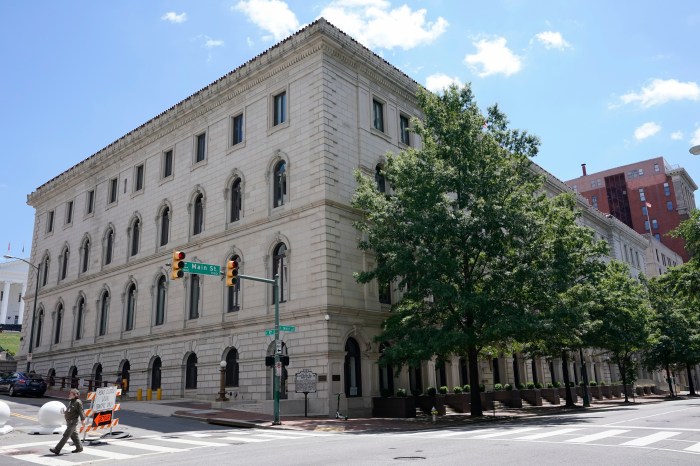CHICAGO (Reuters) – What happens to Social Security if we eliminate its funding?
That is the question to ask after Donald Trump signed a presidential memorandum https://www.reuters.com/article/us-health-coronavirus-usa-congress/trump-vows-to-suspend-us-payroll-tax-after-coronavirus-aid-talks-with-congress-break-down-idUSKCN2532DZ last weekend ordering the deferral through year-end of revenue collected under the Federal Insurance Contributions Act – better known as the payroll tax – that funds Social Security.
FICA is the more appropriate name, because it more accurately describes the purpose of these payroll deductions. “I think of it as an insurance premium that we pay for Social Security,” said Bill Arnone, chief executive officer of the National Academy of Social Insurance, a network of research and policy experts on the nation’s social insurance programs.
Arnone worries about the short-term impact of a payroll tax deferral on the finances of Social Security – and even more about the long-term danger if Trump gets a chance to follow through on a threat he made last weekend – echoed by a top campaign lieutenant – to push for termination altogether of the Social Security tax if he wins a second term.
“The idea that we would not fund Social Security this way in the future opens the door to a fundamentally different approach that changes the program from social insurance to something else,” Arnone said. “It would become more like a safety net, and not social insurance.”
Trump stated in the memo that deferring worker FICA obligations is a “modest, targeted action [that] will put money directly in the pockets of American workers and generate additional incentives for work and employment, right when the money is needed most.”
Social Security and Medicare provide benefits we all earn through a lifetime of contributions – or premiums – that we pay via the FICA. Earned benefit is a core concept of social insurance, alongside the idea that these programs efficiently protect us all against risks – the loss of income in old age in the case of Social Security, or healthcare costs in the case of Medicare.
Social Security is funded primarily by a 12.4% FICA tax split evenly by workers and employers – the program also earns some revenue from interest on trust fund bonds and taxation of benefits. The employer share of the tax was deferred until year end under CARES Act relief legislation signed into law in March. The new presidential memorandum https://bit.ly/2Cjc5O5 would suspend the employee share from September through December for workers earning less than $4,000 biweekly, pretax.
A FICA deferral will be ineffective as economic policy – it provides tax relief to employed people, not those who have lost jobs and need disaster relief – assistance keeping a roof overhead and food on the table. It is also unclear that employers will want to execute this short-term deferral of tax payments that will be due in 2021 anyway.
A re-elected Trump might have trouble getting a termination of FICA through Congress, and administration officials making the rounds of Sunday morning news shows last weekend tried to walk back that pledge. But here is the scenario that frightens progressive Social Security advocates: if re-elected, Trump could continue to defer contributions under the emergency powers he is leveraging now as the pandemic crisis rolls on.
LEVERAGE FOR REFORM
That could fundamentally alter the balance of power on reform of Social Security in favor of proposals long favored by Republicans, argues Nancy Altman, president of Social Security Works, a leading progressive advocacy group.
“What Trump has shown is that he believes he has the authority and to decide when FICA contributions are due,” she said. “One option for him, if he is re-elected, is to say that the pandemic has us in such bad economic straits that he will defer FICA collections until 2024. That would drain the Social Security trust fund to zero in about two years – at which point he has all the leverage.”
Leverage for what? The Republican Social Security agenda has been spelled out in legislative proposals and bipartisan reform commissions convened over the years.
The combined Social Security retirement and disability trust funds face a long-term financial shortfall, with program trustees projecting “exhaustion” of the funds in 2035. That would leave sufficient FICA revenue to pay roughly 80% of promised benefits. (https://reut.rs/3fRNgXg)
Democrats advocate closing the gap by raising the cap on wages subject to FICA taxes ($137,700 this year) and gradually raising tax rates for employers and workers.
On the Republican side, the big idea is raising the full retirement age (FRA), when you can claim 100% of your earned benefit. The FRA already is rising gradually to 67 under reforms enacted in 1983; Republicans have proposed raising it further to 69 or 70. They also favor means-testing benefits, which would shade the program toward a welfare structure – a benefit you need, rather than one you earn. Under President George W. Bush, they proposed changing Social Security into a system of voluntary personal investment accounts.
Do Altman’s fears sound far-fetched? Well, Senator Chuck Grassley, Republican chair of the powerful Senate Finance Committee, said this week https://bit.ly/3iuwfUG he would support permanent elimination of the FICA tax if it were tied to broader reforms of the program.
Even if that does not come to pass, interrupting the flow of FICA revenue will increase public worry, already sky-high, about the future of Social Security. Most polls show people worry a great deal about whether their benefits will be there in the future. For example, the Pew Research Center has found https://pewrsr.ch/2XQBCpk that 42% of non-retirees doubt they will receive any Social Security benefits when they leave the workforce, and another 42% think benefits will be provided, but at a reduced level.
Defunding Social Security is a surprising proposal to hear in an election year – but that does not mean we should not pay attention.
(Reporting by Mark Miller in Chicago; Editing by Matthew Lewis)



















